Phonics Skills Letter Sounds Worksheets for Ages 3-5
6 filtered results
-
From - To
Unlock the world of early literacy with our Phonics Skills Letter Sounds Worksheets designed specifically for ages 3-5. These engaging worksheets are perfect for young learners to explore letter sounds through fun activities and vibrant illustrations. Each worksheet encourages letter recognition, sound associations, and phonemic awareness, laying a strong foundation for reading. Whether at home or in the classroom, these resources are designed to bring joy to the learning process while enhancing essential phonics skills. Start your child's reading journey today and watch their confidence soar as they master the sounds of the alphabet with our carefully crafted materials!
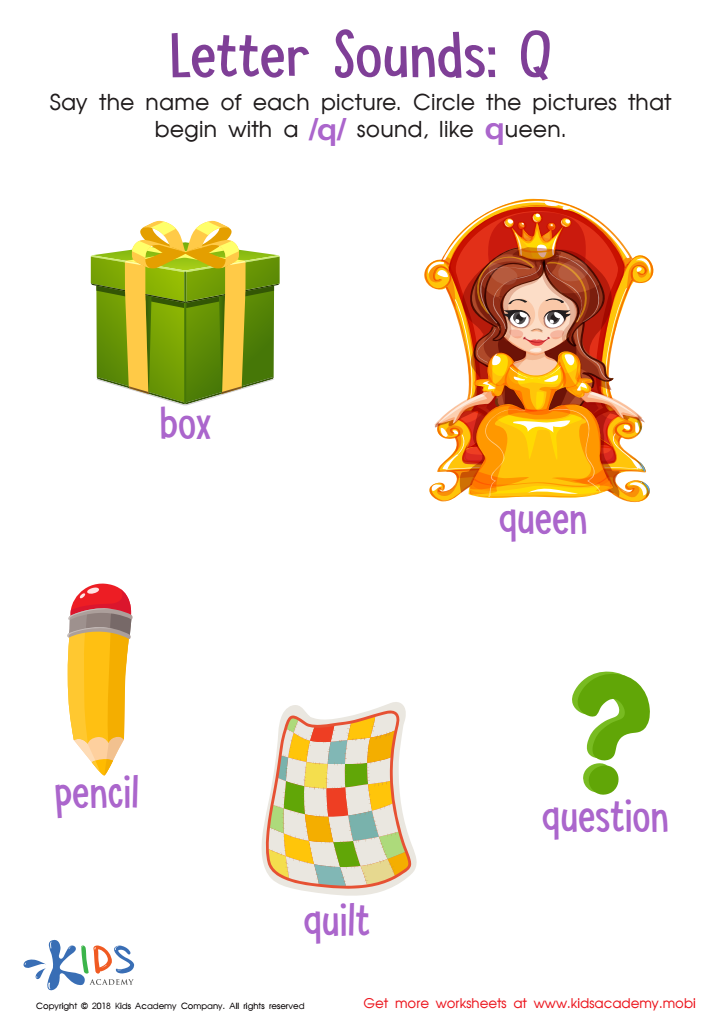

Letter Q Sounds Worksheet
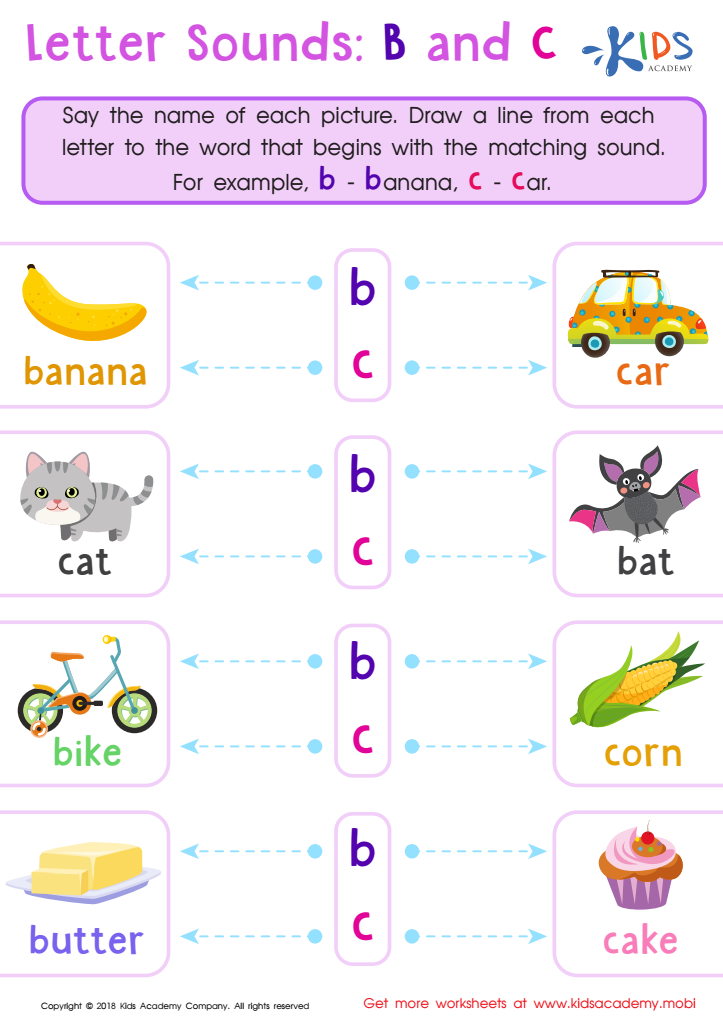

Letter B and C Sounds Worksheet
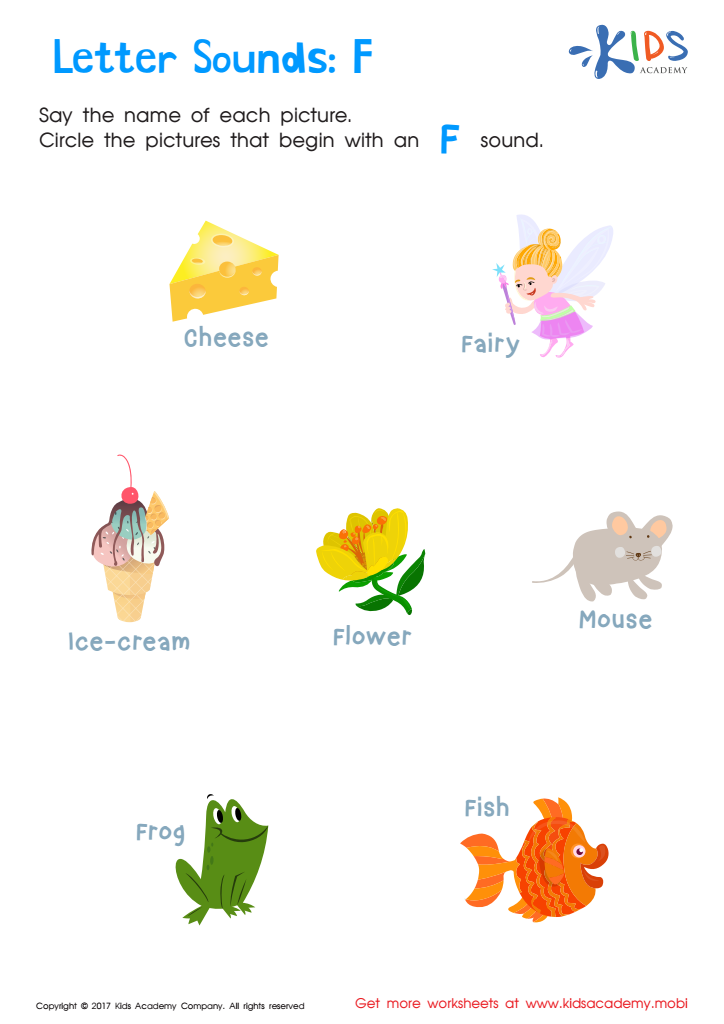

Letter F Sounds Worksheet
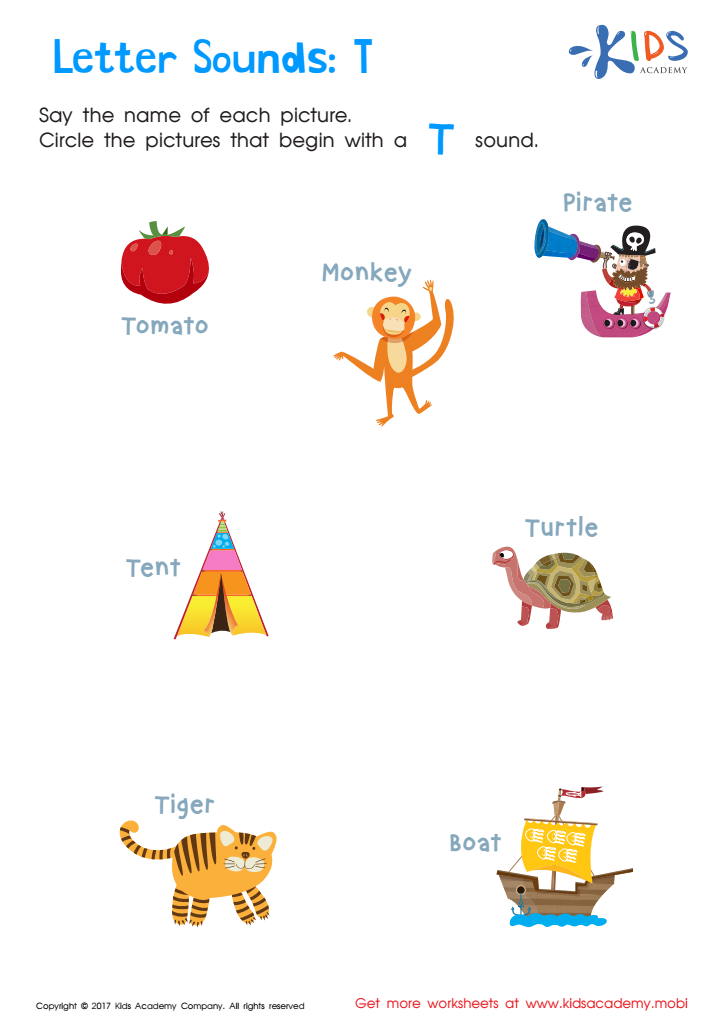

Letter T Sounds Worksheet
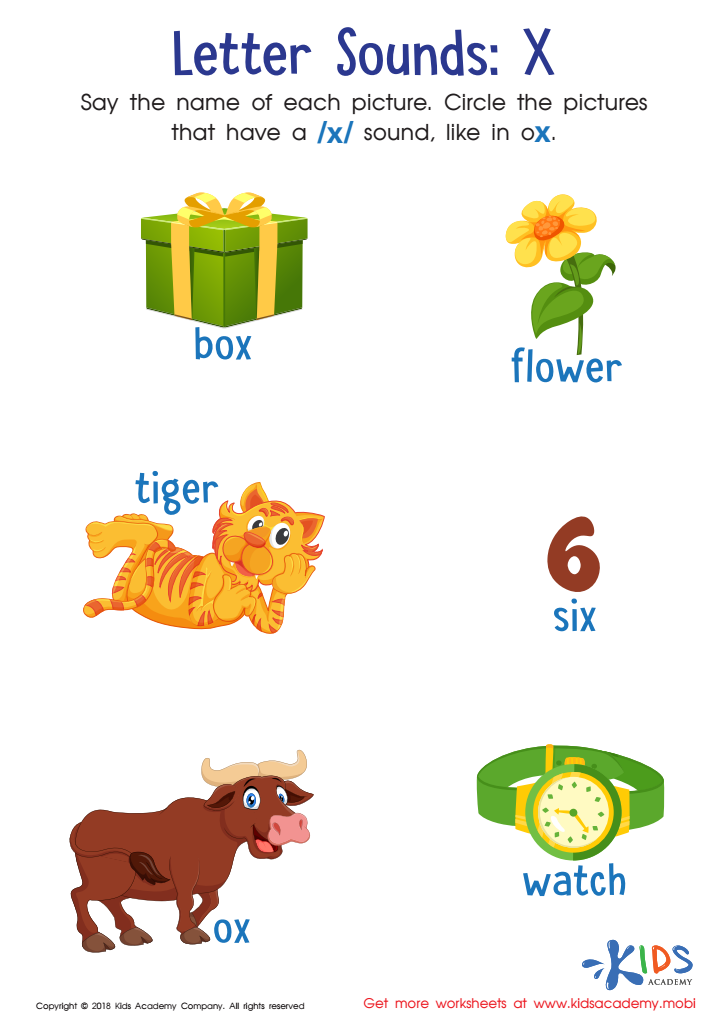

Letter X Sounds Worksheet
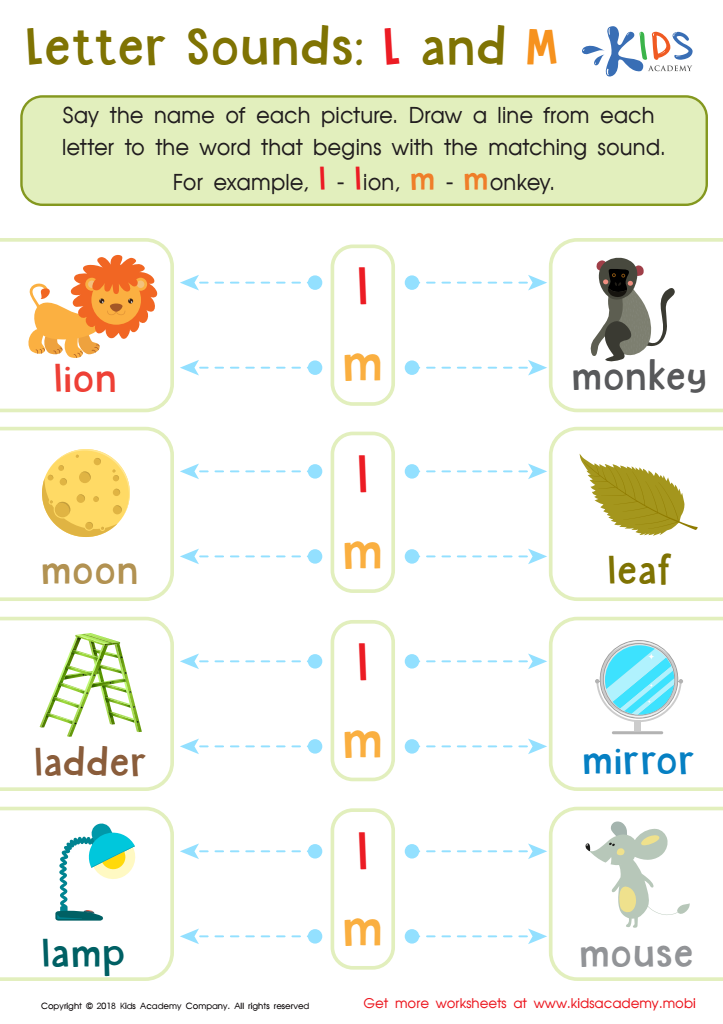

Letter l and M Sounds Worksheet
Phonics skills, particularly letter sounds, are foundational in early literacy and language development for children aged 3-5. During this crucial developmental stage, young learners begin to decode the relationships between sounds and letters, which is essential for reading and writing.
Caring about phonics helps parents and teachers guide children in recognizing and pronouncing letters correctly, paving the way for early reading success. Understanding basic letter sounds fosters phonemic awareness, allowing children to manipulate sounds, which is vital for blending and segmenting words. This skill is important not just for literacy but also enhances vocabulary development, spelling, and overall communication.
Investing in phonics skills at a young age equips children with the tools they need to navigate a text-rich environment, leading to greater academic confidence and competence in the future. Additionally, strong phonics skills correlate with better performance as children progress in school.
Moreover, engaging children in phonics can make learning fun through songs, rhymes, and games, creating positive early educational experiences. Ultimately, promoting phonics lays a crucial foundation for lifelong learning, empowering children to become proficient readers and successful learners. Thus, it is essential for parents and teachers to prioritize phonics skills in early education.
 Assign to My Students
Assign to My Students


















